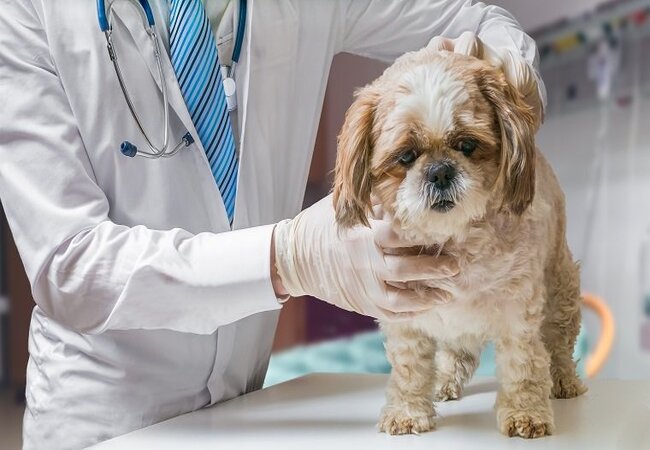Canine Toxoplasmosis 2025 Vet Guide: Understanding, Treating & Preventing Infection🐾🧫

In this article
Canine Toxoplasmosis 2025 Vet Guide: Understanding, Treating & Preventing Infection🐾🧫
By Dr. Duncan Houston BVSc
Hello, caring pet parents! I’m Dr Duncan Houston BVSc. In this comprehensive 2025 veterinary update, we explore toxoplasmosis in dogs—a rare but important parasitic infection. We'll cover causes, clinical signs, diagnosis, treatment, prevention, and how Ask A Vet, offer valuable support for canine health and wellness 💡.
1. What Is Toxoplasmosis?
Toxoplasmosis is caused by the protozoan parasite Toxoplasma gondii, which primarily completes its lifecycle in cats but can infect virtually all warm-blooded animals—including dogs. Though dogs are not primary hosts and rarely shed the infective eggs, they can become infected through ingestion of oocysts or tissue cysts.
2. Why Dogs Can Get It
- Ingesting oocysts: from contaminated cat feces in soil, water, or raw meat.
- Eating tissue cysts: by consuming undercooked meat or scavenging infected animal carcasses.
Healthy adult dogs rarely develop disease—immunocompromised individuals or young puppies are at higher risk.
3. Signs & Clinical Presentation 🩺
When dogs do become ill, signs reflect the systems affected by generalized infection:
- Systemic symptoms: fever, lethargy, loss of appetite, weight loss.
- Gastrointestinal signs: diarrhea, vomiting.
- Respiratory issues: coughing, difficulty breathing.
- Neurological signs: seizures, neurologic deficits, ataxia.
- Jaundice: if liver is involved.
Symptoms are typically severe and occur mostly in young or immunosuppressed dogs.
4. Diagnosis 🔬
- History & exam: ask about outdoor access, hunting, raw meat diet.
- Blood tests: CBC and chemistry may show systemic illness like anemia or liver involvement.
- Serology: IgM and IgG titers to detect recent or past infection.
- PCR testing: detects DNA in blood, tissue, or CSF in neurologic or systemic cases.
- Imaging: chest X-ray or abdominal ultrasound if respiratory or GI signs present.
- CSF analysis: for dogs with neurologic abnormalities.
5. Treatment Guidelines in 2025
Earlier veterinary references recommend:
- Clindamycin: **10–12.5 mg/kg PO twice daily for 3–4 weeks** (dogs).
- Combination therapy: sulfonamides (e.g., sulfadiazine) + pyrimethamine, or trimethoprim-sulfa—particularly in severe systemic or neurological cases.
Treatment aims to control active infection; cysts may persist and reactivation is possible if immunity drops.
6. Prognosis & Follow-Up
- Puppies and immunosuppressed dogs: guarded prognosis—early treatment improves outcomes.
- Adults with mild illness: good recovery with appropriate therapy.
- Neurologic forms: possible permanent deficits; recovery may take weeks to months.
- Follow-up strategy: repeat titers, check bloodwork regularly, consider longer treatment if signs persist.
7. Prevention Strategies 🛡️
- Avoid feeding raw meat or untreated prey.
- Prevent scavenging—keep dogs supervised outdoors.
- Practice hygiene—wash hands after handling raw meat; clean food/water bowls daily.
- Manage cat litter carefully—keep dogs away and dispose properly.
- Avoid environments where many cats defecate.
8. Tools from Ask A Vet💡
- Ask A Vet: 24/7 advice for monitoring symptoms, medication reminders, and deciding when to seek urgent care.
9. Emotional Support for Families ❤️
Seeing your dog ill can be distressing. Ask A Vet offers emotional reassurance and decision-making support. tools help simplify your caregiving routine so you can focus on healing together. You’re never alone—reach out to support communities or veterinary counsellors for encouragement.
10. Final Thoughts
Toxoplasmosis in dogs is uncommon—fortunately, most adult dogs recover with prompt diagnosis and treatment. Puppies and immunocompromised dogs are more at risk and need early intervention. With clindamycin or combo therapy, regular vet monitoring, and prevention strategies, your companion has the best chance for full recovery. And with Ask A Vet, by your side, caregiving is compassionate, informed, and supported every step of the way 🐕✨.
— Dr Duncan Houston BVSc
Find ongoing guidance at AskAVet.com and download the Ask A Vet app today to support your pup’s health journey!






